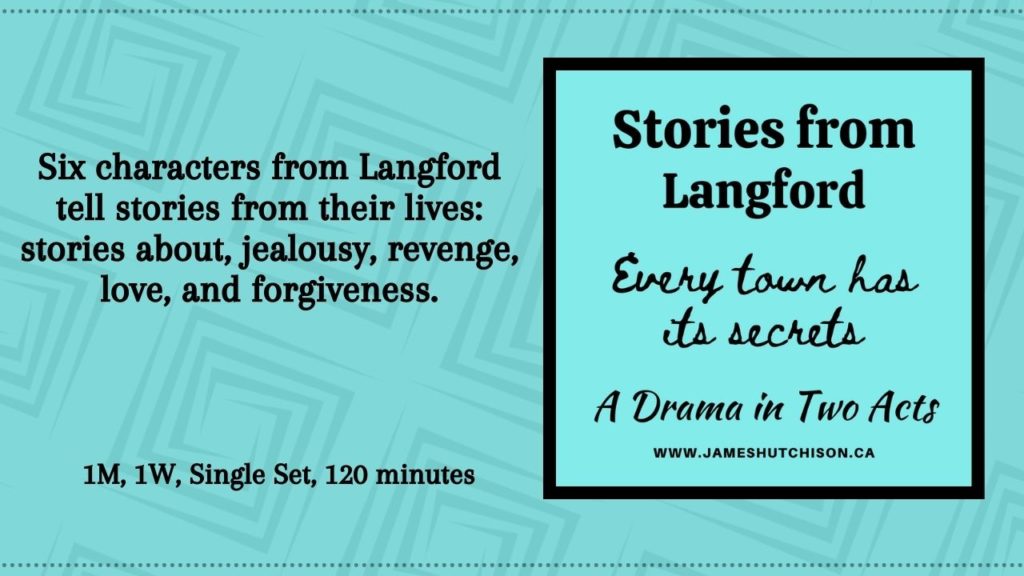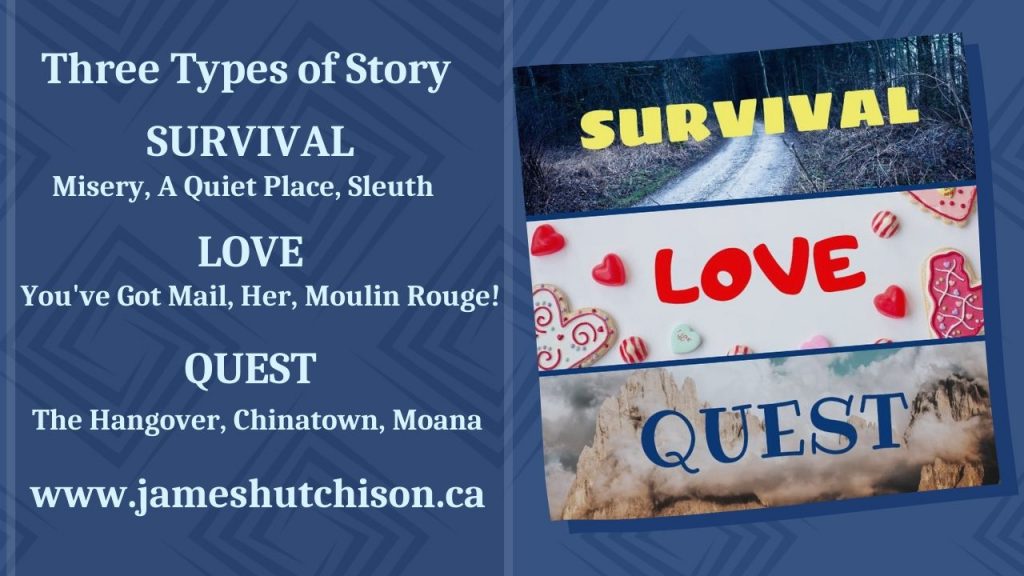“It’s a play that changed the theatre landscape in the world, and makes you entertained in the moment, and lets you reflect on your own situation and the world that you’re in. And that’s the other kind of marker for this play is that existential, you know, absurdist world view of ‘There’s no God, there’s no religion, there’s nothing to believe in so why are we here? What’s the point of life? What’s the point of continuing on?’ This play swims in those waters too. All those kind of questions that sometimes wake us up in the middle of the night, or strike us at our most insecure moment.”
Christopher Hunt
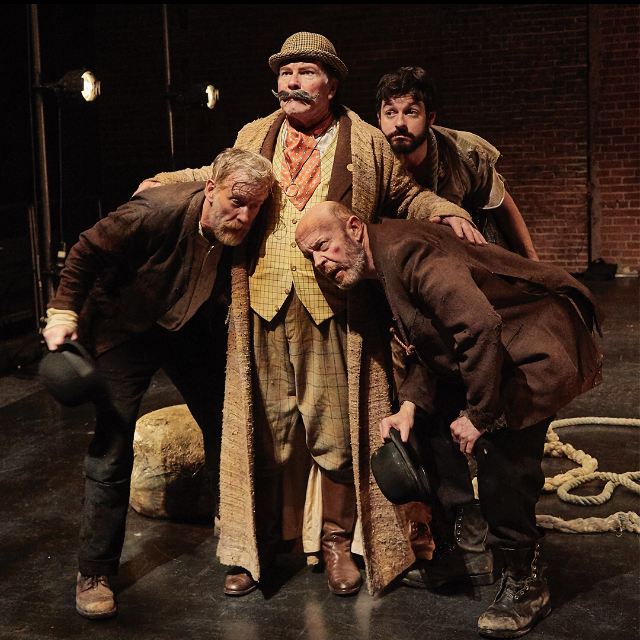
Although we’re a long way in both time and distance from January 5, 1953 when Waiting for Godot premiered in Paris – and opened up new possibilities of expression for the stage – the play still resonates with a modern audience. ‘Before Beckett there was a naturalistic tradition. After him, scores of playwrights were encouraged to experiment with the underlying meaning of their work as well as with an absurdist style. As the Beckett scholar Ruby Cohn wrote: “After Godot, plots could be minimal; exposition, expendable; characters, contradictory; settings, unlocalized, and dialogue, unpredictable. Blatant farce could jostle tragedy.”
At it’s simplest, the play is about two longtime friends waiting on the side of a road near a tree to meet with Godot, but on a deeper level, Godot explores the existential nature of existence and the underlying perseverance of humanity. It’s also a play rich in comedy, and a thought-provoking piece of theatre. So, it seemed rather appropriate that on World Theatre Day I journeyed to The GRAND to meet up with Christopher Hunt, one of the founders of Black Radish Theatre, to talk with him about his acting career, Black Radish Theatre, and the ageless appeal of Waiting for Godot.
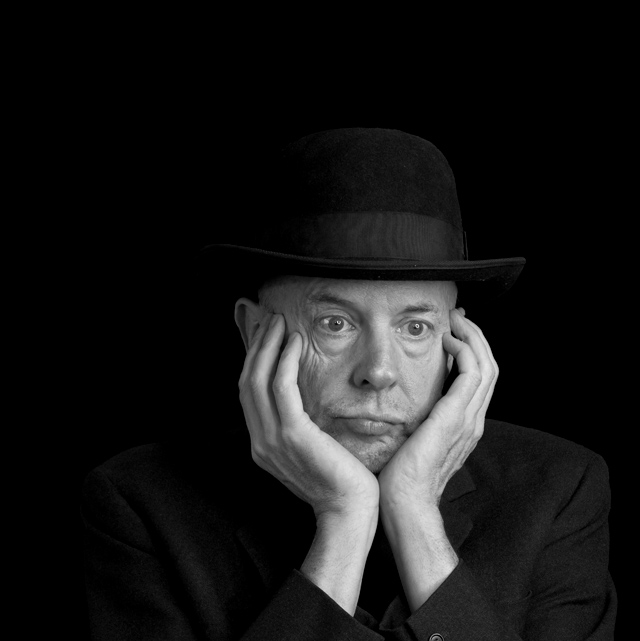
JAMES HUTCHISON
In a previous interview you talked about having inspirational teachers at the start of your career when you were getting interested in drama and acting. Who were some of those teachers and how were they inspiring for you?
CHRISTOPHER HUNT
The first play I ever did was Tom Sawyer in grade four, and Mrs. Allen was my teacher. I remember she had auditions and I thought Sam Crystal was going to be Tom Sawyer because he was so outgoing, and I was really surprised when I got the part of Tom. And we did the play – you know – whitewashing the fence and Aunt Polly and all that stuff, and I just have such vivid memories of the fun that that performance gave me.
And then a few years later in Junior High I had a teacher named Mrs. Palmer who taught drama as an option, and again she played these theatre games that I’d never experienced before, and it allowed this shy little farm boy to open up and try different things and be funny.
And then in High School, I had a teacher named Marlene Hansen – she directed us in one-act plays for festivals, and one year when I was in grade eleven a grade twelve student won a scholarship to the Drumheller Drama School, and this guy didn’t want to go by himself, so Mrs. Hansen scraped together some money so I could tag along too, because I was a young keener. And once I found the Drumheller Drama School, that was like finding my tribe. These were theatre nerds like me – I didn’t know there were so many! And that lead me to take the Drumheller Drama School the next year and the year after that, when I was out of high school.
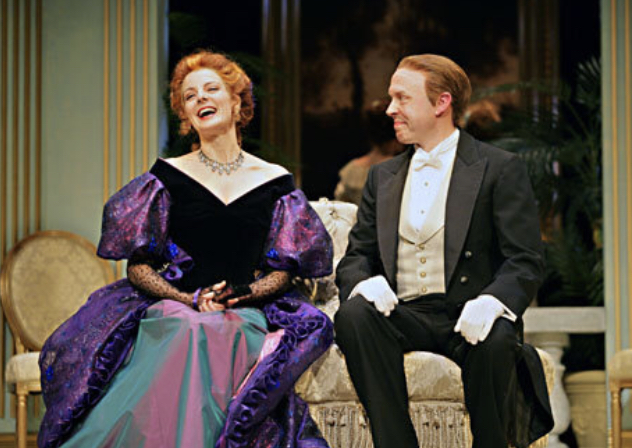
JAMES
After that, you ended up going to the U of C, and I was interested to learn that you originally went into Education, and I was wondering why you chose Education and what made you switch to Drama?
CHRISTOPHER
I think it was because of those influential teachers that inspired me, and I thought that teaching would be great because I had so much fun with them when I was a student. I remember going to matinees as a student to Theatre Calgary in the old QR Centre and seeing The Importance of Being Earnest with Stephen Hair and Maureen Thomas, and I just thought that was amazing, but I never thought I could do that. I just loved the theatre and the fact that I was doing plays in high school was enough for me so I thought teaching drama would be a great thing to do. But when I got into university and I took some Drama courses and some Education courses – the Education courses were a bad fit, but the Drama courses were a good fit. So I talked it over with my parents who were helping me pay for university, and I said, “I think I’m going to switch.” My dad was a farmer all his life, and he was worried about me going into an industry that was even less reliable than farming. He wanted something a little more stable for the only one of his kids who went on to a university education. My brothers went to Olds College for agricultural studies, and my sister took some college courses. But then my parents did some plays in the amateur High River theatre group – Windmill Theatre Players – and once they saw what it was like, they could understand why I was so enamoured with it, and it became a little easier to get their support.
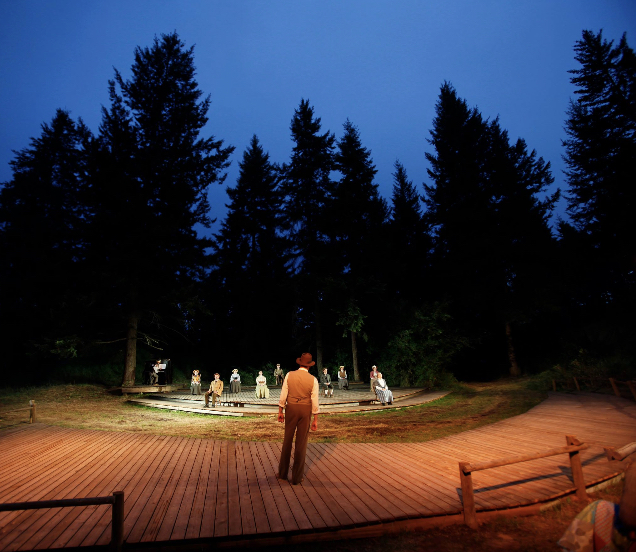
JAMES
As an actor you’ve said you’re open to using all sorts of different tools and techniques for creating a performance and I’m just curious how being able to draw on different techniques such as improvisation or method acting has been helpful in terms of hitting the stage, rehearsing plays, and developing characters.
CHRISTOPHER
I think as actors and as theatre people we get a chance to go into a whole bunch of different worlds and different stories and different kinds of telling stories and different buildings in which to tell those stories and different audiences to tell those stories to. And I’ve seen and worked with people who have a specific way of approaching the work. They always prepare this way. They always warm up this way. They always present themselves a certain way, and to me I admire that, but I think it can be limiting when you have all these variables in terms of types of stories, types of venues, types of characters, and because there’s so much variety, I think it’s better to embrace the variety than protecting a particular way of working. You have to be open, otherwise I think you’re limited in terms of the opportunities that might potentially come your way.
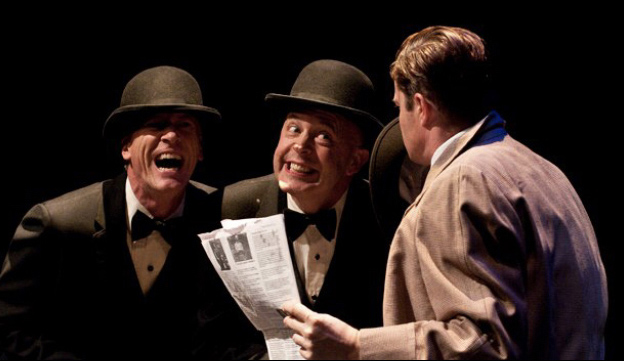
JAMES
Now, just before Christmas, you were at Vertigo Theatre in Dracula: The Bloody Truth. You were Van Helsing and that’s a play with multiple characters in it and you’ve done The 39 Steps which also has a lot of different characters and there seems to be a lot of that type of theatre happening now. Do you enjoy performing in that kind of show?
CHRISTOPHER
I do. It’s big bold choices – not subtle choices. But if I was just doing roles where I played a bunch of different characters in funny hats and voices and stuff like that I think it would get pretty tiring. That’s what I love about what I do. I can do that, and then I can do The Scarlet Letter or I can do Rosencrantz and Guildenstern – all these different challenges.
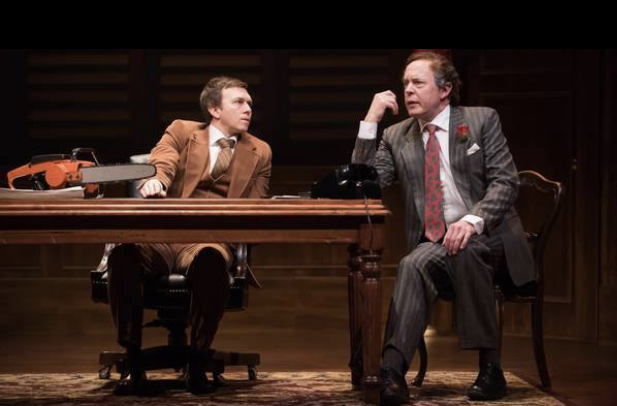
JAMES
Last year you were the recipient of the 2018 Harry & Martha Cohen Award which is given to individuals who have made a significant and sustained contribution to theatre in Calgary. You were nominated for the award by Grant Reddick and Marilyn Potts and they said, “Season after season, Chris has given performances that are significant, technically assured, innovative, subtle, engaging, amusing and often deeply moving. He is a master of comedy, his energy and timing in farce are delightful, and he tackles serious drama with ease.”
CHRISTOPHER
That was very nice of them to say all those things.
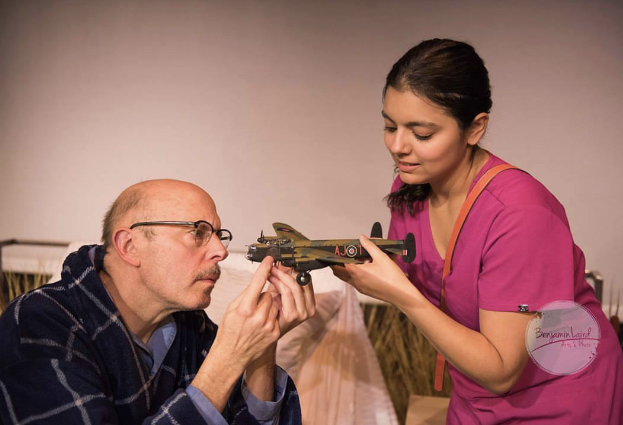
JAMES
So, what was it like to win that award which has been given to some really talented people? That’s quite an honour.
CHRISTOPHER
Huge honour. Huge. And yeah, just the other night Denise Clarke was given that same honour for this year. It’s a beautiful club to be a part of and I don’t take it lightly. It’s nice to be recognized for the work we do, and for the longevity, and for the decision to stay in one place and to be a part of one community. People say, “Why didn’t you go to Toronto/Vancouver/L.A./New York?” or whatever, but you know, I can have a family here and a home here and a career here, and I get to work with people from all over. And sometimes I get to go all over, so it’s a pretty sweet gig. I’m certainly not in it for the money but I feel pretty fulfilled and rewarded for the work I do.
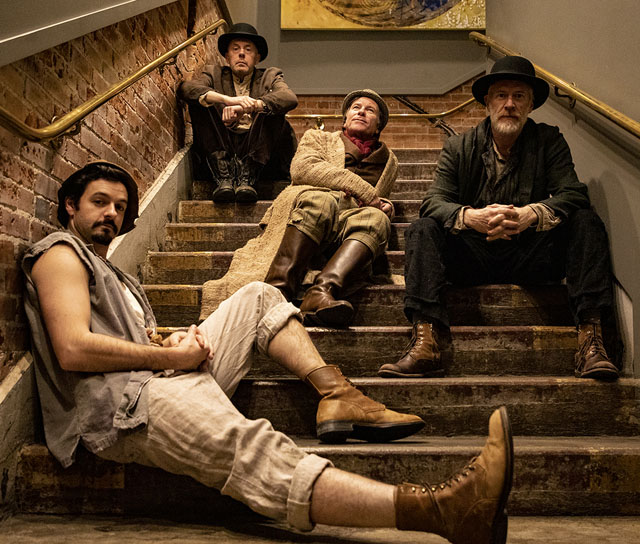
JAMES
So, you’ve assembled a group of people and you’re starting a new theatre company called Black Radish. Why this group of people? Who are they? What brought you guys together?
CHRISTOPHER
Well, we’re all Calgary-based actors. There’s four of us. And what brought us all together was this bucket list show of Waiting For Godot. I met Andy Curtis back in our university days. He was a Loose Moose improviser and a very funny and talented guy, and then we worked together years later at Quest Theatre and at Ghost River Theatre and One Yellow Rabbit, and we’ve been actors-for-hire and have crossed paths several times over the years. And at some point, maybe ten years ago, we talked about Waiting for Godot. And it was a play we both loved and wanted to do. And then maybe about five years ago – maybe even longer – we said, “Let’s get together and just read it for fun.” And I can’t even remember who the other people were who helped us out that first time, but over the years people came and went, and once or twice a year we would read it and talk about how great it would be to do this play. We’d say, “We should talk to the artistic directors and pitch it and see if anyone would want to do it!” And no one did but, we kept on talking about doing it. And Duval Lang was the next person to come on board, and he would have us over to his place to have coffee and read the play and talk about it. And then Tyrell Crews is the fourth member of Black Radish. He had worked at the Stratford Festival a few years ago and saw an awesome production there and he said, “Man, we could do a play like that easily in Calgary, with the talent here.” And for some reason he thought of me and Andy as the main two guys and we said, “It’s funny you should say that, because we’ve been reading this play for years!” And he went, “Seriously?” So he said, “I’m going to apply for the rights – let’s do it.”
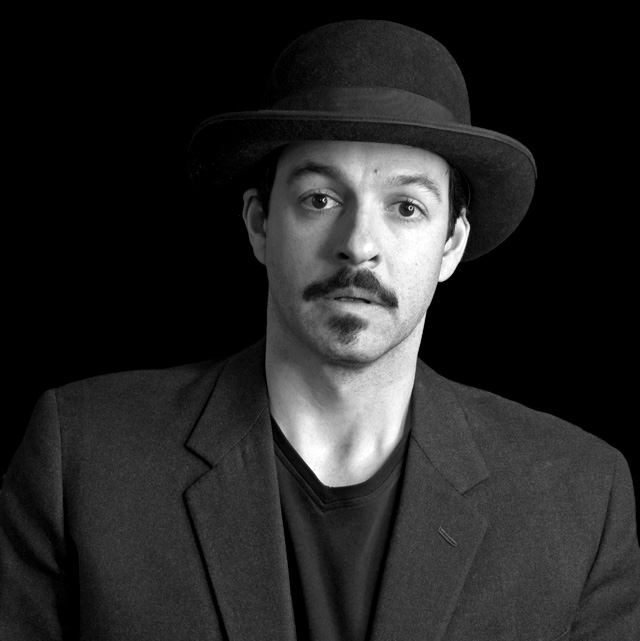
JAMES
What is it about the play that you find so compelling?
CHRISTOPHER
When I read it in high school I didn’t get it, but I liked the simpleness of it but also the complexity of it. And then the summer before I started at U of C, I saw a production of Waiting for Godot at the Pumphouse that Loose Moose did. Keith Johnstone directed it. John Gilchrist the restaurant reviewer was Pozzo. Dennis Cahill and Mel Tonkin were the main two guys. Frank Totino was Lucky and I believe Keith Johnstone’s wife at the time, Ingrid, played The Boy. And that production blew my head off, and I just went, “This is astounding.” It was so simple. It was so funny. It was so moving. It was a perfect little jewel of a production. And a lot of people loved that production. And I’ve since found out that Keith Johnstone had a huge history with Samuel Beckett. He saw the original English language production in 1955 and loved it. And changed his career to become a theatre guy. And a year later he was the playwright in residence at the Royal Court Theatre, and Samuel Beckett came to London with his next play. And Keith Johnstone met him and they became friends. Keith was one of the first people he allowed in to watch his rehearsals. And Keith’s directed the play maybe eight times since then, including the one that I saw. So Tyrell and I went and chatted with Keith last month and got some of his thoughts on the play and Beckett and that world, How many guys are there in the world who knew Samuel Beckett that are still around? And he’s here in Calgary!
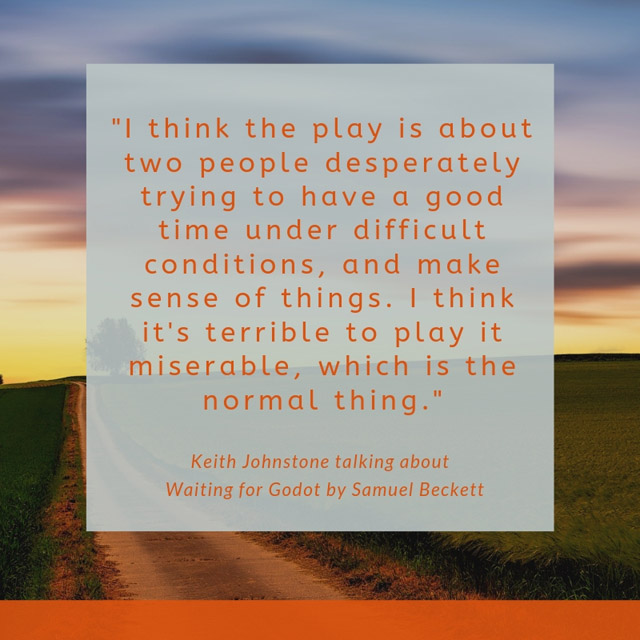
JAMES
Let’s talk a little bit about Godot and that world. How are you approaching it? What do you think of it? I’m curious – what are your thoughts?
CHRISTOPHER
Well, to me, it’s a good play because it’s open to interpretation both for the artists doing it and for the audience watching it. I think what I love about it is its open-endedness, and its ability to speak to whomever. That was one of the nuggets that Keith said. He said, “When I was twenty and I watched this play I went, ‘This play is about me.’ Now, when I read it, this play is about me now as an old man as opposed to a young artist.” And it’s been famously done in Sarajevo and South Africa and prisons, and so it speaks to people everywhere, especially if it’s a good production. And it spoke to me when I saw it and it speaks to me now. It’s deliciously vague and malleable and thought-provoking and funny. And it’s easy I think to veer off and to make it too sombre, or to make it too silly and funny. It’s a tricky balancing act. And that’s what I loved about that Keith Johnstone Loose Moose production because it was moving, funny, and thought-provoking. It was all those things good theatre should be.
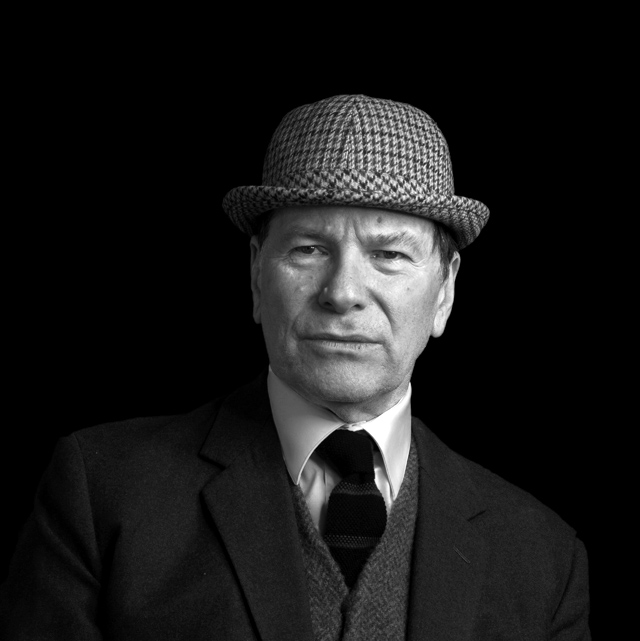
JAMES
How would you describe Vladimir and Estragon’s relationship in the play? You’re playing Estragon and Andy Curtis is playing Vladimir, correct?
CHRISTOPHER
Yeah. You know, it took me a long time to start to see any real difference between the two. They’re two kind of clown-like tramp-like figures that are down on their luck and have health concerns and personal concerns and frustrations with each other, but also a long history with each other. And I think as I read more about them and read what other people thought of them I started to figure out that Vladimir is more of the thinker. He’s more looking to the sky, and he’s more thoughtful and intellectual and in his head. And Estragon is more rooted to the ground and hungry and tired and forgetful. And so he’s more earthbound and Vladimir is more outward bound. And they know how to push each other’s buttons, and they know how to support each other. And then there are moments of, “I honestly can’t go on. I don’t think I can do this anymore.” Or, “I think it would be better if we parted,” and those kind of moments hit you like a ton of bricks, because who hasn’t thought about that?
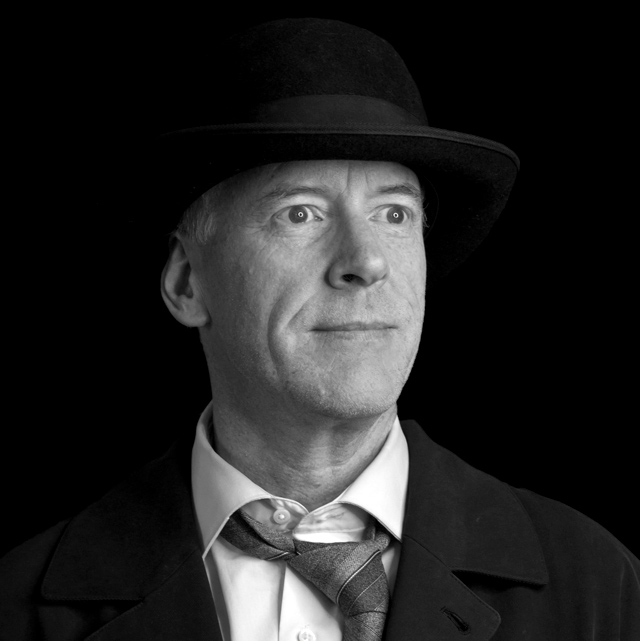
JAMES
What are you hoping to discover in the rehearsal process for the play?
CHRISTOPHER
Well, we’re all really excited to be working with Denise Clarke as our director and our design team because they’re all super talented and have a lot of intellectual rigour and theatrical knowledge to help bring this story alive. Denise has talked about wanting to honour the text and the history of the play, but also to give people something unexpected. We want to shake things up a bit. And Denise, with her work as a choreographer and a writer and a performer, has a lot of ideas around how to be in a space, especially in the Grand which is a beautiful space to be in.
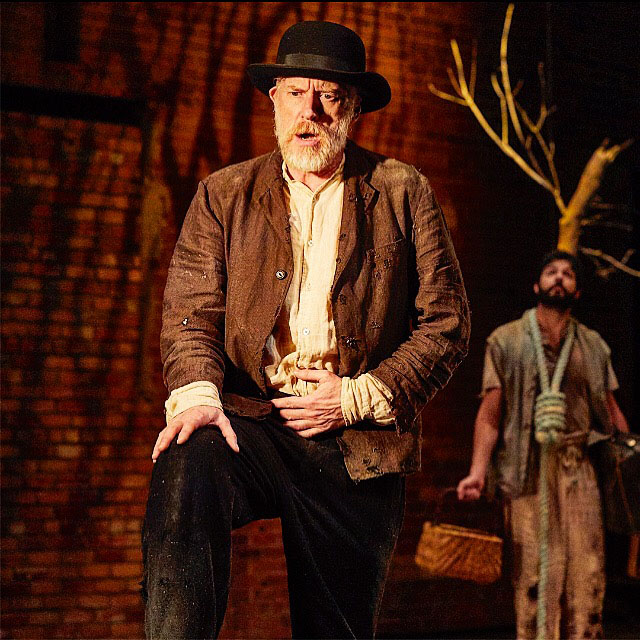
JAMES
You know what’s really interesting to me about the text is that it doesn’t really give you much of a clue about the world outside of this tree and rock and road. We don’t know the truth of the world outside although we do know there’s the Eiffel Tower, but this bleak landscape might be more normal than the exception.
CHRISTOPHER
Yup, that’s true and it’s a field day for designers too, because how do you include those elements? How do you make those elements? What kind of a tree is it? What kind of a rock is it? Some people ignore that, and put it inside of a concrete bunker, and some people ignore the stage directions and have them dress totally different. So it’s what you pick and choose, and what you focus on and what you share that makes your version come alive or not.
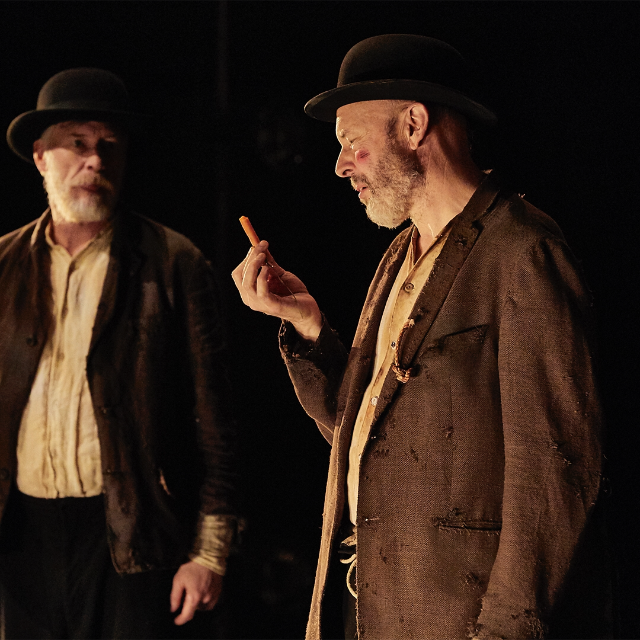
JAMES
And your designer is Terry Gunvordahl.
CHRISTOPHER
Yes. Set and lighting designer.
JAMES
The last thing I saw on stage that was Beckett was about eight years ago when he did Krapp’s Last Tape. He was acting in it and Anton deGroot was at Lunchbox at that time doing the RBC Emerging Director’s program and that was the play he had chosen to present. And I went to see it and it was a really good production and Terry was really good in it.
CHRISTOPHER
I’m sorry I missed that. Terry is a big Beckett fan and he’s done this play before – an amazingly well-remembered production in Kamloops years ago with some great actors in it including Jonathan Young from The Electric Company and Betroffenheit which was a big hit all across the world actually. So, Terry knows this play well and he’s really pumped to do it again here at the Grand especially because he used to design shows here when Theatre Junction was more active producing their own work.
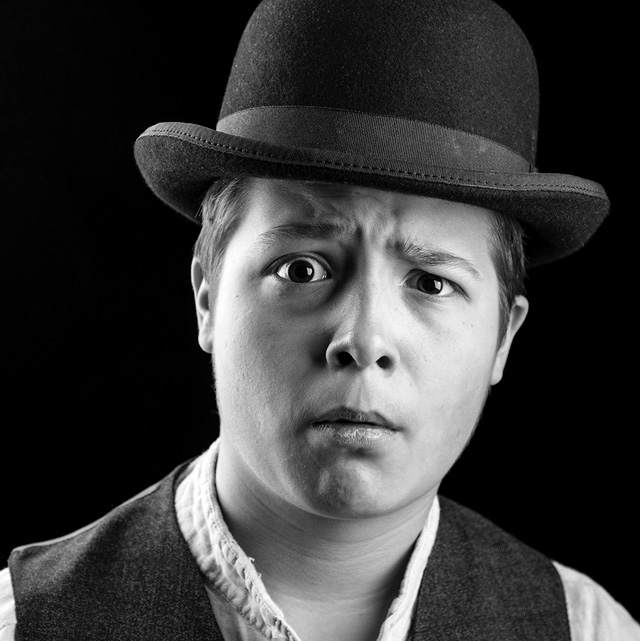
JAMES
So, why should people come and see the show?
CHRISTOPHER
It’s a new company to support, and it’s in a space that’s revitalized and welcoming again. It’s a play that changed the theatre landscape in the world, and makes you entertained in the moment, and lets you reflect on your own situation and the world that you’re in. And that’s the other kind of marker for this play is that existential, you know, absurdist world view of “There’s no God, there’s no religion, there’s nothing to believe in so why are we here? What’s the point of life? What’s the point of continuing on?” This play swims in those waters too. All those kind of questions that sometimes wake us up in the middle of the night or strike us at our most insecure moment.
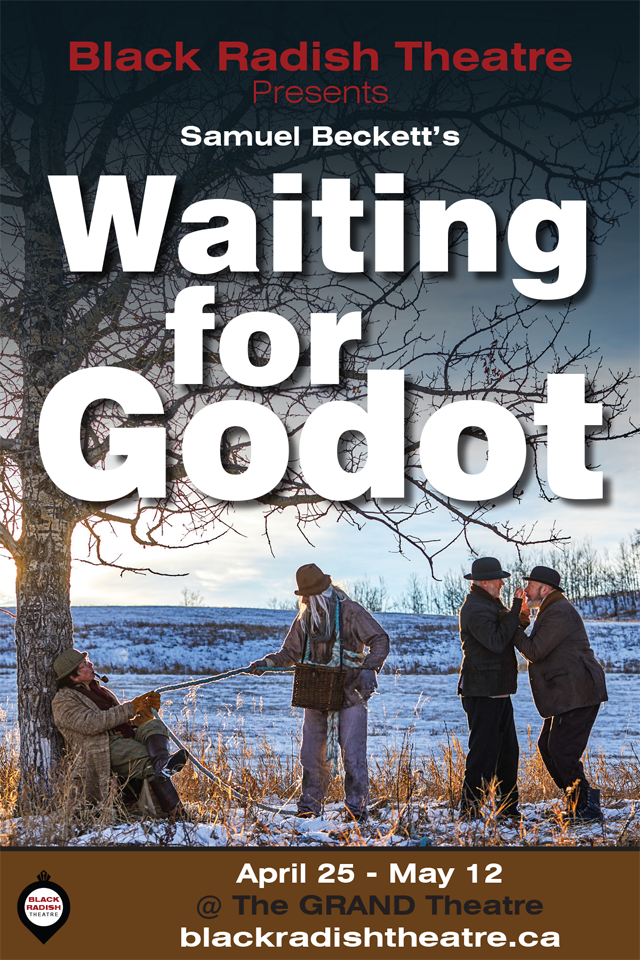
Waiting for Godot
a tragicomedy in two acts
By Samuel Beckett
Cast
Estragon: Christopher Hunt
Vladimir: Andy Curtis
Pozzo: Duval Lang
Lucky: Tyrell Crews
The Boy: Anton Matsigura
Production
Director: Denise Clarke – Assistant Director: Sarah Wheeldon – Set & Lighting Designer: Terry Gunvordahl – Costume Designer: Ralamy Kneeshaw – Sound Design & Composition: Peter Moller – Stage Manager: Meredith Johnson – Photography and Graphic Design: Hugh Short – Web Site: Keith Watson
BLACK RADISH THEATRE is a new Calgary-based theatre company, founded by Duval Lang, Andy Curtis, Tyrell Crews and Christopher Hunt, and is committed to revisiting relevant theatre classics. Waiting for Godot by Samuel Beckett is their first bucket list show and is being performed at The GRAND – Calgary’s theatre since 1912.
Black Radish Theatre presents Waiting for Godot – a tragicomedy in two acts – by Samuel Beckett. April 25th to May 12th at The GRAND. Evening performances Tuesday through Saturday at 7:30 pm with Saturday and Sunday matinees at 2:00 pm. Tickets are just $46.00 for adults and $30.00 for Students and Seniors. Tickets are available online at www.blackradishtheatre.ca
